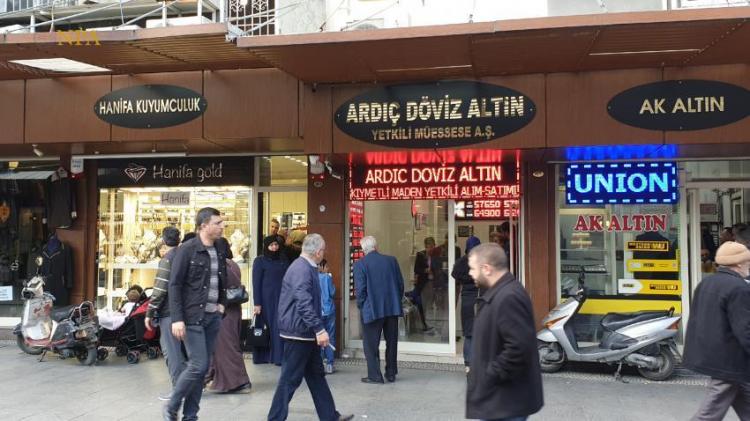In numbers, this is what the Syrians have added to the Turkish economy
Istanbul – North-Press Agency
Muhammad Al-Yanayeri
The Syrian refugees in Turkey, numbered of more than 3.5 million Syrians, are currently living in a state of great panic caused by the new Turkish restrictions on residence, work and travel permits that have led to the deportation of a number of Syrians over the past few days from Turkey, in light of a policy whereby the Syrians encouraged to return to their homeland in addition to being pressed by the Turkish authorities in an unprecedented manner, especially in Istanbul, following the recent developments.
While many Turks accused the Syrians of being responsible for damaging the Turkish economy in one way or another, and this is the main reason behind the pressure practiced on Syrians nowadays.
On the other hand, various statistics and economic reports revealed otherwise, as Syrians have a magnificent role in the economics of Turkey, where they have already succeeded in enriching the Turkish economy and adding in many vital sectors.
In the midst of the current campaign aimed at the Syrian presence in Turkey, a number of economic reports that reflect the extent of damage to Turkey can be found in the case of the current policy of restricting the Syrians in its territories, this is because the Syrians represent a weight in the Turkish market and the Turkish economy in general.
Numbers
On December 13, 2018, the Turkish Center for Economic Policy Research issued a detailed report on the impact of the Syrians on the Turkish economy, the figures in this report refute many voices that are offensive to the Syrians and hold them responsible for harming the Turkish economy, thus being considered a “threat to the national security”.
The report ranked Syrians at the top in Turkey in terms of the establishment of companies annually on the level of foreign investors, with a total value of up to 119343550 Turkish Lira (22.1 million dollars). For seven years, the Syrians have established more than 10,000 companies in Turkey, with four companies a day.
Furthermore, according to the same report, Istanbul (which is now witnessing a wave of anger against the Syrian presence and judicial procedures to review the presence of Syrians in the state to limit them) comes first in terms of establishing companies on an annual basis by the Syrians, especially in the sectors of trade, real estate, tourism agencies, food and textiles.
An active presence
Among the reports that can be used to confirm the effectiveness of the Syrian presence in the Turkish economy is the report by the Turkish Police Academy, after a survey of Turkish citizens, on 24 November 2018, entitled “Misinformation creating hatred”, the report refutes many of the accusations against the Syrians in Turkey, and concluded that the view of many Turks to the Syrians are based on false information.
According to the report issued by the official academy of police, “The Syrians did not cause unemployment, rather, created job opportunities for the Turks through opening successful companies and institutions,” as there are many official statements and reports that have provided the Syrians with relief in that way during the past years.
Investments
Returning to the language of numbers, the Syrians are pumping investments worth more than 1.5 billion dollars in the Turkish economy, according to the statistics of the Syrian Businessmen and Entrepreneurs Association “SIAD” recently, which revealed that it’s in the process of disclosing detailed figures on the Syrian investments in the Turkish economy soon.
According to various media reports, the Syrians distributed in Turkey (apart from almost half a million Syrians living in refugee camps and supported by the United Nations in cooperation with the European Union) pay monthly rents and taxes, and contribute to moving the economy through their various economic projects, as well as their purchase of Turkish Products.
According to these reports, there are more than 400 thousand houses rented by the Syrians in Turkey (spread over different cities). The average rent is about 500 Lira per month, i.e. a monthly average of up to 400 million Turkish Lira. Also, the Syrians are subjected to taxes and “bills” that include electricity, water, the internet, and others, with a monthly average of 400 Lira per month, as all of this go to the treasury of companies invested in those sectors.
Moreover, other reports have mentioned that every Syrian family spends around a thousand Lira per month on purchasing Turkish products, and the Syrians’ annual purchases exceed 4 billion Lira, the Syrians produce about 7 billion Lira annually for all these activities, other than investments and different kinds of fields they work in, and hundreds of workshops threatened to be disrupted and stopped, in the event of deportation of Syrians, and eventually the absence of labor force.

